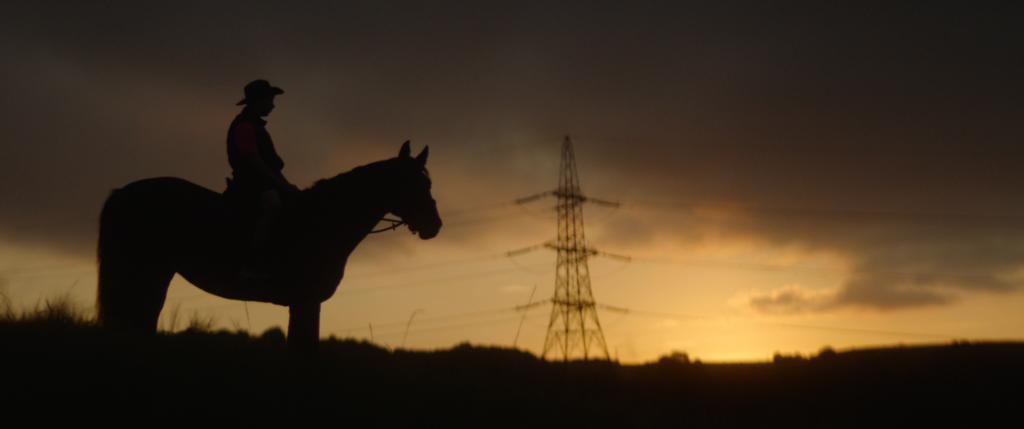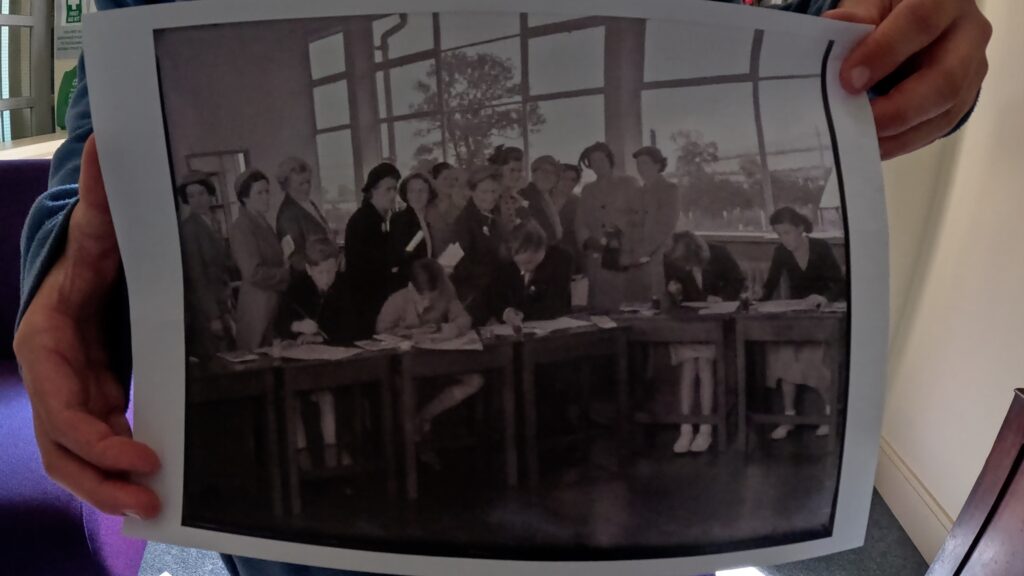Programme
Programme
An Early Clue to the New Direction: Queer Cinema Before Stonewall
Angelo Madsen Minax
Animistic Apparatus
Anti-Archive
Artist in Focus: Marwa Arsanios
Artists' Film Labs
Ayo Akingbade
BFMAF 2025: Festival Replay
Berwick New Cinema – 2018
Berwick New Cinema – 2017
Berwick New Cinema Competition
Berwick New Cinema Features – 2019
Berwick New Cinema Features – 2016
Berwick New Cinema Midlengths
Berwick New Cinema Shorts
Berwick Young Filmmakers – 2021
Berwick Young Filmmakers – 2020
Charlotte Prodger
Children & Young People
Children and Young People
Children and young people
Claire Hooper
Closing Film
Closing Gala
Deborah Stratman
Deimantas Narkevicvius
Education & Participation
Enceindre
Essential Cinema – 2025
Essential Cinema – 2024
Essential Cinema – 2023
Essential Cinema – 2021
Essential Cinema – 2020
Essential Cinema – 2019
Essential Cinema – 2018
Essential Cinema – 2016
Events – 2019
Events – 2018
Events – 2017
Events – 2014
Exhibitions – 2025
Exhibitions – 2024
Exhibitions – 2023
Exhibitions – 2019
Exhibitions – 2018
Exhibitions – 2017
Exhibitions – 2016
Exhibitions – 2015
Exhibitions – 2014
Fantastika
Festival Club – 2025
Festival Club – 2024
Festival Club – 2023
Festival Club – 2019
Filmmaker in Focus: Basma al-Sharif
Filmmaker in Focus: Eduardo Williams
Filmmaker in Focus: Kira Muratova
Filmmakers in Focus
Films – 2018
Films – 2016
Films – 2015
Films – 2014
Focus: Ayanna Dozier
Focus: Eri Makihara
Focus: Ways of Seeing Fanon
Galas
Goldsmiths MA Artists' Film & Moving Image
Inntravel Award
Inntravel Short Film Awards
Installations
Izza Génini
Los Otros: John Torres & Shireen Seno
New Cinema Awards – 2025
New Cinema Awards – 2024
New Cinema Awards – 2023
New Cinema Awards – 2021
New Cinema Awards Showcase
New Cinema Competition
New Cinema Competition Features
New Cinema Forum – 2025
Nguyễn Trinh Thi
Online Exhibitions
Opening & Closing Gala
Opening Gala
Payal Kapadia
Peggy Ahwesh
Previews
Propositions – 2025
Propositions – 2024
Propositions – 2023
Propositions – 2021
Propositions – 2020
Propositions – 2019
Propositions – 2018
Rajee Samarasinghe
Right of Way
SCREENTIME – 2025
SCREENTIME
SCREENTIME 2021
SCREENTIME 2023
SPS Community Media
Screening the Forest
Seamus Harahan
Seminar – 2018
Seminars
Short Stories from the Border
Showcases
Sophia Al-Maria
Special Events
Special Features (Opening & Closing)
The Artist's Cut
The Burr of Berwick
The Burr of Berwick – 2024
The Film Library – 2026
The Film Library – 2025
Ultramarine
Uzbek Rhapsody
Vertical Screen Commissions
Work in Progress – 2024
Work in Progress – 2021
Venue
Venue
18 Hide Hill
22 Bridge Street
22 Marygate
24 Marygate
57 Marygate
Atelier
Bankhill Ice House
Berwick Amateur Rowing Club
Berwick Museum & Art Gallery
Berwick Parish Church
Berwick Quayside
Berwick Train Station
Berwick Workspace
Brown Bear Inn
Charlie's Night Club
Coxon’s Tower
Custom House
Hub
Kaleidoscope (59 Marygate)
Magdalene Fields Golf Club
Maltings Bar
Maltings Cinema at the Barracks
Maltings Henry Travers
Maltings Main House
New Tower
Peace Church
Rose Garden Flagstaff Park
Shoregate Ice House
St Aidan's Peace Church
The Barrels
The Barrels Ale House
The Gymnasium
The Lookout
The Magazine
The Main Guard
The Radio Rooms
The Straw Yard
Town Centre
Town Hall Council Chamber
Town Hall Old Gaol
Town Hall Prison Cell
Tweedmouth Bowling Club
Visitor Centre
Walking
Wallace Green Council Offices
Filmmaker
Filmmaker
Abdessamad El Montassir
Adam Lewis Jacob
Adam Phillips
Adam Piron
Aditya Verma
Agnieszka Polska
Alan Clarke
Alastair Cole
Alee Peoples
Aleksey Fedorchenko
Alessandro Luchetti
Alex Monteith
Ali Cherri
Ali Khamraev
Alonso Ruiz Palacios
Amalia Ulman
Amber Films’ Current Affairs Unit
Amber Smith
Amie Barouh
Anastasia Lapsui
Andrew Wilson
Andrzej Żuławski
Andy Warhol
Ane Hjort Guttu
Angela Schanelec
Angelo Madsen Minax
Anhar Salem
Anna Biller
Anna Chapman Parker
Anna Raffay & János Lestár
Anna Sofie Hartmann
Anna Solanas
Antje Heyn
Antonio Padovan
Anya Tsyrlina & Sid Iandovka
Apichatpong Weerasethakul
Arash T Riahi
Ariadine Zampaulo
Arjuna Neuman
Ashim Ahluwalia
Asmaa Jama
Assia Djebar
Aura Satz
Aurélien Froment
Ayanna Dozier
Ayesha Hameed
Ayo Akingbade
BFMAF and Berwick Youth Project
Bambitchell (Sharlene Bamboat and Alexis Mitchell)
Barbara Ess
Barbara Miller
Basel Abbas
Basil Dearden
Basim Magdy
Basma al-Sharif
Bayley Sweitzer
Beacon Hill Arts Filmmakers And Musicians
Beacon Hill Arts c.i.c
Beatrice Gibson
Behzad Farahat
Ben Bolt
Ben Rivers
Ben Russell
Benjamin Crotty
Benjamin de Barca
Benjamin de Burca
Bernd Lützeler
Bertrand Mandico
Berwick Youth Project
Bo Hu
Boren Chhith
Brett Story
Brian Welsh
Bruce Connor
Bárbara Wagner
C. Spencer Yeh
Callum Hill
Camara Taylor
Camilo Restrepo
Carlos Casas
Carlos Maria Romero
Carolina Hellsgard
Carolyn Lazard
Cat McClay
Celeste Rojas Mugica
Charlotte Prodger
Chema García Ibarra
Chiara Caterina
Chloë Delanghe
Chris Chong Chan Fui
Christian Desmares
Christian Ghazi
Christian Schwochow
Christopher Ulutupu
Christopher, Ebba, Lara and Violet
Claire Hooper
Clio Barnard
Cláudia Varejão
Colectivo Silencio
Collingwood School
Connecting Threads
Corin Sworn
Courtney Stephens
Cristóbal Léon & Joaquín Cociña
Custom House, South Shields
Custom Reels
Cáit McClay
Cécile B Evans
Daisuke Kosugi
Dakei
Dan Browne
Dan Guthrie
Dane Komljen
Danech San
Dani ReStack
Daniele Galianone
Danielle Brathwaite-Shirley
David Pérez Sañudo
Davy Chou
Day Eve Komet
Deborah Stratman
Deimantas Narkevičius
Diego Marcon
Dimitri Mitselos
Djibril Diop Mambéty
Douew Dijkstra
Douglas Seok
Edgar Reitz & Ula Stöckl
Eduardo Williams
Eitan Efrat
El Moïz Ghammam
Elise & Marcel Florenty Türkowsky
Elise Florenty
Emeric Pressburger
Emilia Beatriz
Emilija Škarnulytė
Emily Grieve
Emily Vey Duke
Emre Hüner
Eri Makihara
Eric Steel
Eva Giolo
Fabrizio Terranova
Fairuz Ghammam
Farah Al Qasimi
Fedorico Adorno
Felicitas Sonvilla
Felipe Casanova
Felix Kalmenson
Feo Aladag
Fergus Carmichael
Fern Silva
Fluorescent Hill
Fox Maxy
Francisco Queimadela
Franck Ekinci
Gala Hernández López
Gelare Khoshgozaran
George A. Romero
George Clark
George Cukor
Ghassan Salhab
Ghislaine Leung
Gilbert Thomas
Giles Bailey
Gillian Wearing
Glendale Film Club
Gouled Ahmed
Grace Schwindt
Graeme Arnfield
Gunhild Enger
Gustavo Vinagre
Gérard Courant
Hardeep Pandhal
Harry Lawson
Hayoun Kwon
Heather Phillipson
Heidrun Holzfeind
Heiny Srour
Helena Solberg
Helena Wittman
Helena Wittmann
Holly Márie Parnell
Hope Strickland
Huw Lemmey
Ian Fenton
Ian Nesbitt
India Sky Davis
Inês Lima
Ion de Sosa
Isabelle Tollenaere
Isadora Neves Marques
Isao Fujisawa
Ismail Shammout
Iva Radivojevic
Izza Génini
Ja'Tovia Gary
Jack Lee
Jack Smith
Jackass Youth Theatre & Jack Drum Arts
Jacob Crow
Jacob Polley
Jacqueline Audry
Jade Sim
Jakrawal Nilthamrong
James N. Kienitz Wilkins
Jamie Crewe
Jamie Hammill
Jared Buckhiester
Jasmina Cibic
Jean Cocteau
Jean Genet
Jean Rollin
Jean-Luc Godard
Jenny Brady
Jenny Perlin
Jessica Dunn Rovinelli
Jessica Sarah Rinland
Jessie McLean
Jet Leyco
Jihwan Jung
Joanna Helfer
Johannes Lehmuskallio
John Abraham
John Carney
John Torres
John Wallace
Jon Moritsugu
Jonathan Rattner
Jordan Lord
João Salaviza
Juan Rodrigáñez
Juan Soto
Julia Freyer
Julia Ocker
Jumana Manna
Jung & Laurent Boileau
Kamal Aljafari
Kamjorn Sankwan
Kanitha Tith
Kaori Oda
Kasper Feyrer
Kat Anderson
Kate Davis
Kathleen Herbert
Kathryn Elkin
Katja Mater
Kavich Neang
Kelso Youth Project
Kenneth Anger
Kerstin Schroedinger
Kevin Jerome Everson
Kids for Kids UK
Kimberley O'Neill
Kira Muratova
Kristina Cranfeld
KwieKulik (Przemyslaw Kwiek & Zofia Kulik)
Lana Gogoberidze
Laure Prouvost
Lav Diaz
Layaly Badr
Lee Yong Chao
Leevi Lemmetty
Leida Laius
Lemohang Jeremiah Mosese
Lena von Dohren
Leonid Shmelkov
Leonor Noivo
Leontine Sagan
Lesley Loksi Chan
Lesley-Anne Cao
Lewis Klahr
Lionel Soukaz
Lisa Rovna
Lisa Spilliaert
Liverpool Black Women Filmmakers .
Lizzy Mansfield
Lorenzo Pezzani
Lucia Pham
Luciana Decker Orozco
Lucrecia Martel
Lucy Clout
Lucy Parker
Luis Arnías
Luis López Carrasco
Lukasz Kacprowicz
Luke Fowler
Lulu Wang
Lyndsay Mann
Maaike Neuville
Malena Szlam
Manuel Muñoz Rivas
Manuela Lazic
Marc Riba
Marcel Türkowsky
Margaret Salmon
Margie Strosser
Mari Terashima
Maria Anastassiou
Maria Clara Escobar
Maria Fusco
Maria Saakyan
Mariana Caló
Marilou Diaz-Abaya
Marion Scemama
Markku Lehmuskallio
Marko Grba Singh
Martha Colburn
Martin John Callanan
Martina Attille
Marwa Arsanios
Mary Helena Clark
Maryam Tafakory
Matt Stokes
Mattijs Driesen
Maud Alpi
Mauritz Stiller
Max Bloching
Media Arts College, Northumberland
Meriem Bennani
Michael Balser
Michael M Neal
Michael Powell
Miko Revereza
Minyong Jang
Mohsen Makhmalbaf
Molly Palmer
Momcilo Mrdakovic
Monica Maurer
Monica Mirabile
Mont Tesprateep
Morgan Quaintance
Mouaad el Salem
Mounira Al Solh
Moustapha Alassane
Muhammad Khairi
Myrid Carten
Márta Mészáros
Nadia El Fani
Nana Tchitchoua
Nancy Florence Savard
Naomi Kawase
Narimane Mari
Natalia Chernysheva
Nele Wohlatz
Nellie Saunby
Nelson Makengo
Nelson Yeo
Nguyễn Trinh Thi
Niamh O'Malley
Niki de Saint Phalle
Nils Malmros
Noro Držiak
Northern Stars Documentary Academy at Tyneside Cinema
Northumberland Archives
Omar Chowdhury
Onyeka Igwe
Ossama Mohammed
Pacho Velez
Pathompon Mont Tesprateep
Patrick Staff
Paul Rooney
Paul Slater
Pauline Boudry
Pawel Pawlikowski
Payal Kapadia
Peggy Ahwesh
Pere Portabella
Peter Burr
Peter Snowdon
Peter Watkins
Phil Collins
Philbert Aimé Mbabazi Sharangabo
Philip Rizk
Philip Scheffner
Philip Trevelyan
Philip Widmann
Phạm Ngọc Lân
Pilar Mata Dupont
Pimpaka Towira
Prem Kapoor
Priit Tender
Professor Pete Smith
Przemek Węgrzyn
RENEE HELENA BROWNE
Rachel Maclean
Rajee Samarasinghe
Rammatik
Rani Massalha
Rania Stephan
Raoul Peck
Razan AlSalah
Rea Tajiri
Rebecca Jane Arthur
Reha Erdem
Rehana Zaman
Renate Lorenz
Renée Nader Messora
Rhea Dillon
Rhea Storr
Rhiana Bonterre
Ricardo Alves Jr.
Richard Heslop
Rita Macedo
Rita Morais
Robert Aldrich
Robina Rose
Rose Butler
Rosie Cochrane
Rouzbeh Akhbari
Roy Lib
Ruanne Abou-Rahme
Rupert Roopnarine
S. Pearl Sharp
Sacha Amaral
Saeed Taji Farouky
Salad Hilowle
Sally Madge
Salomé Lamas
Samir Nimr
Sandra Fruedings
Saodat Ismailova
Sara Gómez
Sara Ishaq
Sarah Ballard
Screen Education Edinburgh
Sebastian Bürkner
Seema Mattu
Sergei Eisenstein
Shadi Habib Allah
Shambhavi Kaul
Sharlene Bamboat
Sheilah ReStack
Shenece Oretha
Shireen Seno
Shobhit Jain
Sid Iandovka
Sirah Foighel Brutmann
Sirah Foighel Brutmann & Eitan Efrat
Sky Hopinka
Soda Jerk
Soda_ Jerk
Sophia Al-Maria
Sophie Michael
Sophie Soobramanien
Sophio Medoidze
Sorayos Prapapan
Sreylin Meas
Stanya Kahn
Stefan Jäger
Stefan Ramírez Pérez
Stephanie Comilang
Steve Reinke
Stuart Marshall
Stéphane Aubier, Vincent Patar
Su Hui-Yu
Suneil Sanzgiri
Sung Hwan Kim
Susann Hoffmann
Tako Taal
Tamara Henderson
Tana Gilbert
Tanatchai Bandasak
Tanoa Sasraku
The New Red Order (Adam Khalil, Zack Khalil & Jackson Polys)
Tiffany Sia
Tim Alsiofi
Tim Leyendekker
Tina Keane
Tony Chun-Hui Wu
Tsai Ming-liang
Tsuneo Goda
Tuna Kaptan
Ufuoma Essi
Ulrike Ottinger
Uma Breakdown
Unknown
Uri Kranot
Ursula Biemann
Valentin Noujaïm
Valerie Massadian
Victor Jara Collective
Vincent Meessen
Virgil Vernier
Virginia Heath
Voice of My Own
Vojtěch Jasný
Walter Saxer
Wendy Clarke
William N. Boyle
Wojciech Bąkowski
Wong Ping
Yu Araki
Zaza Urushadze
Zia Anger
Zinzi Minott
Zlatko Bourek
seamus harahan
Éiméar McClay
Ж .
×
Country
Country
Algeria
Argentina
Armenia
Australia
Austria
Bahrain
Bangladesh
Barbados
Belgium
Bolivia
Bosnia and Herzegovina
Brazil
Cambodia
Canada
Cape Verde
Chile
China
Colombia
Cuba
Czech Republic
Democratic Republic of the Congo
Denmark
Egypt
Estonia
Ethiopia
Finland
France
Georgia
German Democratic Republic
Germany
Greece
Guatemala
Guyana
Hong Kong
Hungary
India
Indonesia
Iran
Ireland
Italy
Jamaica
Japan
Kurdistan
Laos
Lebanon
Lesotho
Libya
Lithuania
Luxembourg
Malaysia
Malta
Mexico
Montenegro
Morocco
Mozambique
Myanmar
Netherlands
New Zealand
Nicaragua
Niger
Nigeria
North East England
Norway
Oman
Palestine
Paraguay
Peru
Philippines
Poland
Portugal
Puerto Rico
Qatar
Russia
Rwanda
Saudi Arabia
Senegal
Serbia
Singapore
Slovenia
South Africa
South Korea
Soviet Union
Spain
Sri Lanka
Swaziland
Sweden
Switzerland
Syria
Taiwan
Tajikistan
Thailand
The Netherlands
Tunisia
Turkey
USSR
Ukraine
United Arab Emirates
United Kingdom
United States
Uzbekistan
Venezuela
Vietnam
West Germany
Western Sahara
Yemen
the former Yugoslav Republic of



